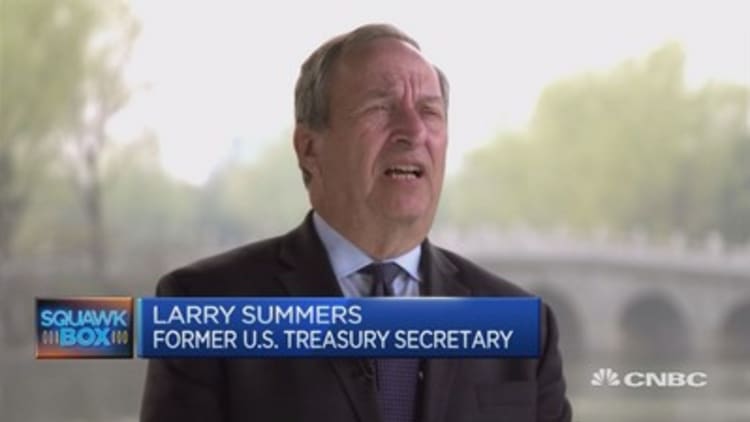
When it comes to the world's second-largest economy, capital outflows and real estate are two key areas of concern for former Treasury Secretary Larry Summers.
"I think they (policymakers) are building strains in terms of debt accumulation, what's happening in real estate, markets, pressure for capital outflows," he told CNBC at the China Development Forum in Beijing on Sunday.
These challenges "point to potential areas where there could be a slowdown," he continued.
While Summers acknowledged Beijing's capacity to manage the economy — the government, he said, isn't complacent — he warned that maintaining the growth rate would force Chinese officials to "do things that are more and more problematic in terms of long term sustainability."
And as a result, "growth achieved over the next year or two will be growth borrowed from the future," he continued.
One such example is state investment to maintain real estate prices and demand, he said: "That's the kind of thing that probably can't be continued indefinitely."
Monetary stimulus from the People's Bank of China over 2016 enabled domestic banks to grant more loans to prospective home buyers as well as property developers. China's real-estate investment, including commercial and residential sectors, rose 8.9 percent on-year for the first two months of 2017, according to official data.
The magnitude of capital outflows is another challenge, Summers said, noting that the nation's "combined capital outflow has been huge by historical standards."
Last week, the central bank increased money market rates to rein in outflows after January's foreign currency reserves fell below the $3 trillion mark to hit a near six-year low.
As the Federal Reserve tightens policy, Summers said Beijing's move of higher interest rates was likely "the more sustainable path."
"I certainly wouldn't want to be critical of the Bank of China. But I do think that the strains come from the fact that they seem to need to do things to maintain demand that probably they won't be able to do forever. And so in a sense their delaying reform is, I think, a cause for concern."


